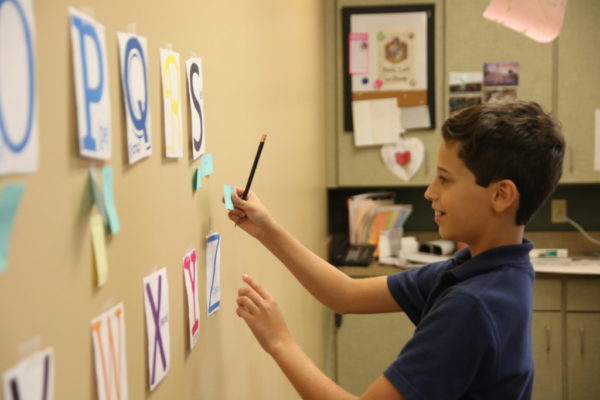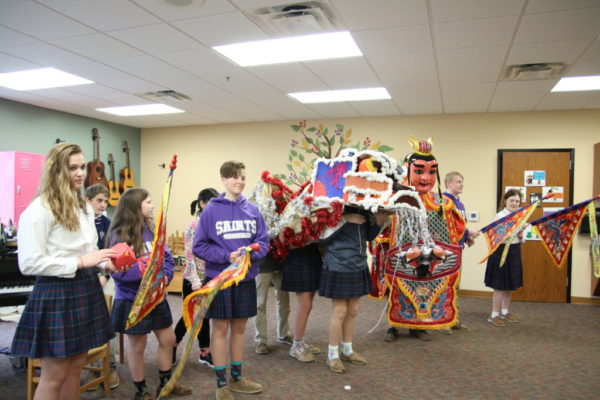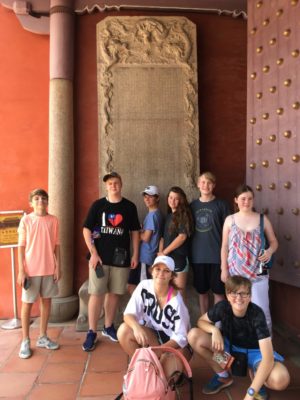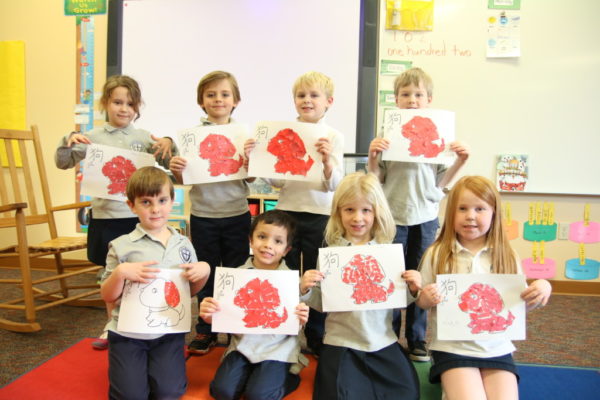As a Spanish teacher, I’ve often heard parents say they wish they remembered more from their high school world language course. Parents instinctively know that kids’ brains soak up a second language more quickly and efficiently than their adult minds. Not only do school-aged children excel at learning a second language, but research has also demonstrated numerous academic and cognitive advantages for world language learners:

Second language learners are better problem solvers, since they have trained their brains to focus on relevant information when approached with a difficult task
They outscore their peers who don’t learn another language on the verbal and math sections of standardized tests
Younger children can produce the sounds and intonation of a second language, helping them develop native-like fluency that adults can’t
Children are more accepting and open to other cultures
Being bilingual improves memory since dual language speakers brains’ access two different vocabulary word banks
Learning a second language helps you better understand and communicate in your own language
When students learn a second language, they don’t just learn vocabulary and grammar, they learn to express themselves, leading to increased creativity
Kids who learn a second language are more effective auditory processors
Learning a second language allows the learner to begin thinking and behaving differently based on cultural context, fostering an appreciation of different cultures and divergent ways of thinking

At Episcopal School of Knoxville, we offer world language programs starting at age three. Daisy Chen, the lower school Mandarin teacher, considers both short term and long term benefits to world language acquisition as she instructs her young students. She wants students to develop an interest in learning a second language, while they establish social skills, build confidence in language abilities, and interact with a different culture. In the long term, she says that learning a world language allows children to think globally, gain confidence to deal with challenging situations, and communicate cross-culturally. As these students reach higher education and the workforce, they will be afforded more career opportunities and remain self-motivated to continue their language journey, Chen believes.


Sheau-Fei Huang, our middle school Mandarin teacher says, “the Chinese language offers a rich history and culture for students to explore and enjoy. It is also a tonal language with written Chinese characters that look like pictures, which makes it a great developmental tool to strengthen learners’ visual and aural ability.” Ms. Huang stands by her statement; each summer she leads a group of graduating eighth grade students to Taiwan or China to complete a homestay and educational study tour. In the lower school, students from three years of age through 4th grade have a Mandarin class once a week.
Our dedication to world language education makes us unique in the private school community in Knoxville. Beginning at age three, students learn Spanish and Mandarin through games and songs that allow the teacher to communicate with the learners almost exclusively in the target language. Middle school students take three years of a world language of their choice, either Spanish, Mandarin, or Latin, and leave ESK not only knowing how to learn a world language, but also ahead of their peers as they enroll in advanced language courses, sign up for study abroad programs, and excel academically across their subjects. This year students will even have the opportunity to practice their skills and learn about another culture from visiting Guatemalan exchange students.
At Episcopal School of Knoxville, we value whole-child development, and world language education is a cornerstone. Come visit our school to see a world language course in action!




















Are there any foreign language classes for children in the greater Knoxville area?